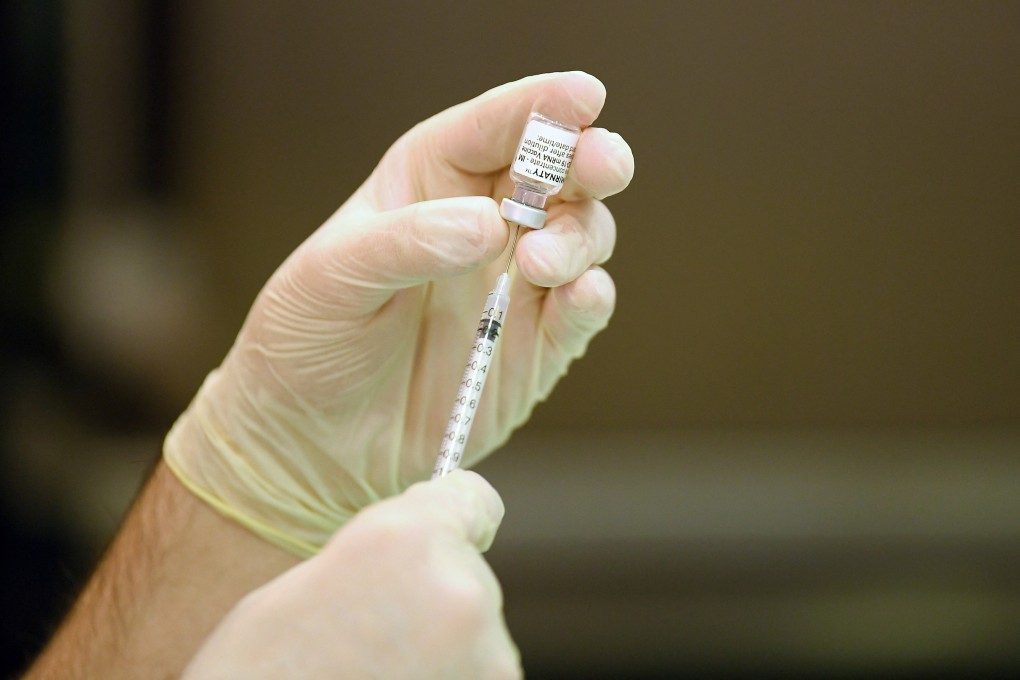Another delay to BioNTech Covid-19 vaccine study in China
- Phase 2 trial now not expected to end until October, according to clinical trial database
- It is the second postponement for the study’s completion date

The trial was initially expected to end December last year but was delayed until April and now October, according to an update on ClinicalTrials.gov, a database by the National Library of Medicine in the United States that tracks clinical trials around the world.
The summary of the study said “the trial for each participant will last for approximately 13 months”.
The study is directed by the German vaccine developer BioNTech in collaboration with its Greater China distributor Shanghai-based Fosun Pharma and conducted by the Jiangsu Provincial Centre for Disease Control and Prevention.
The Pfizer-BioNTech mRNA jab is the most widely used Covid-19 vaccine in the world, with more than 6 billion doses supplied globally, according to the Unicef Covid-19 Vaccine Market Dashboard.